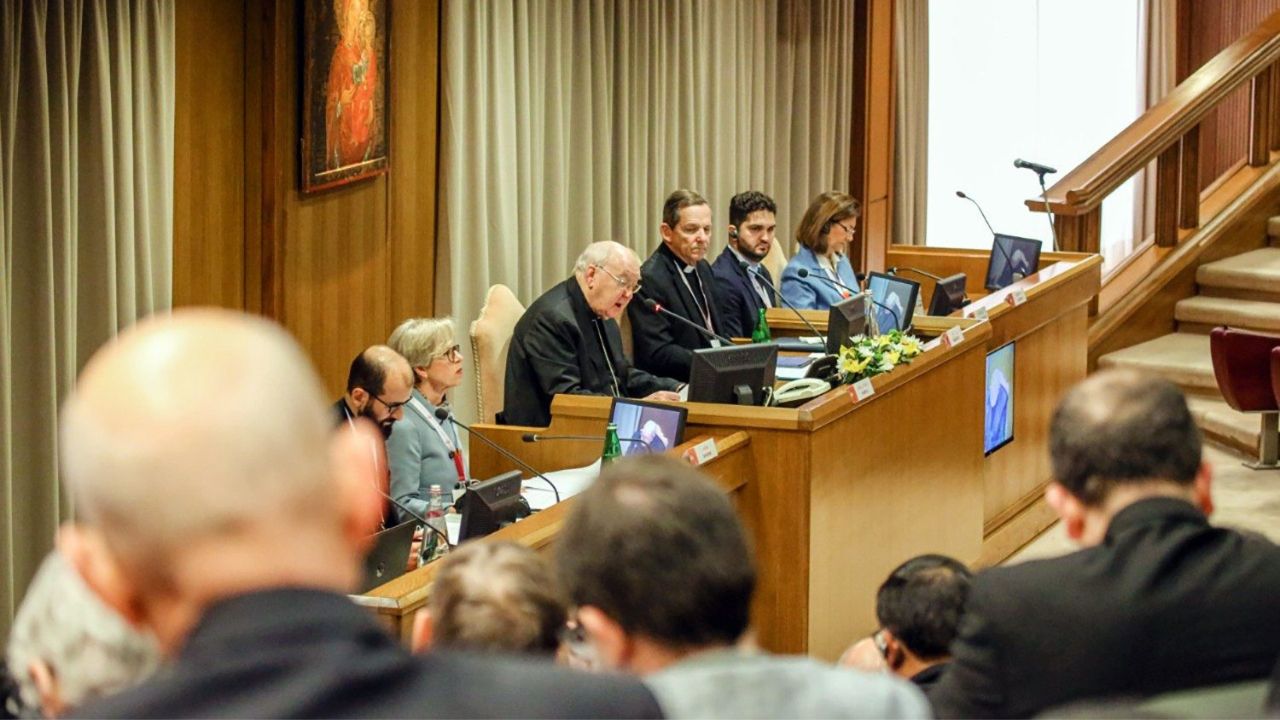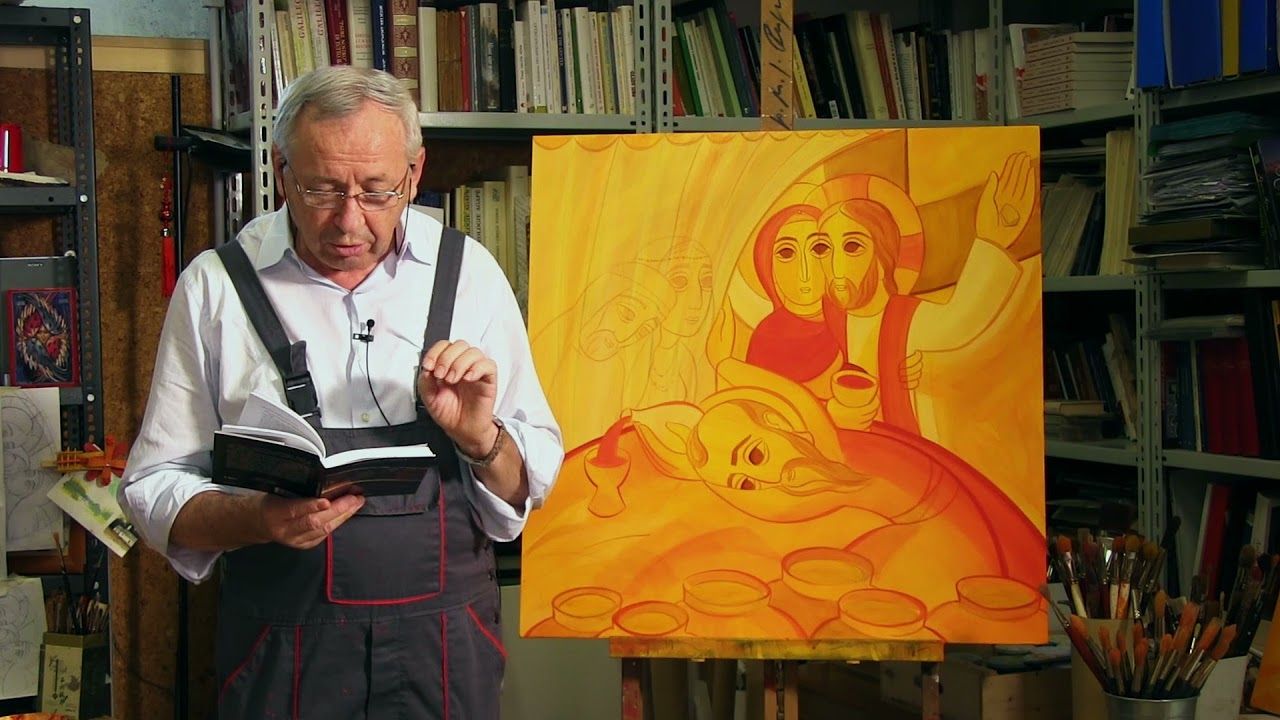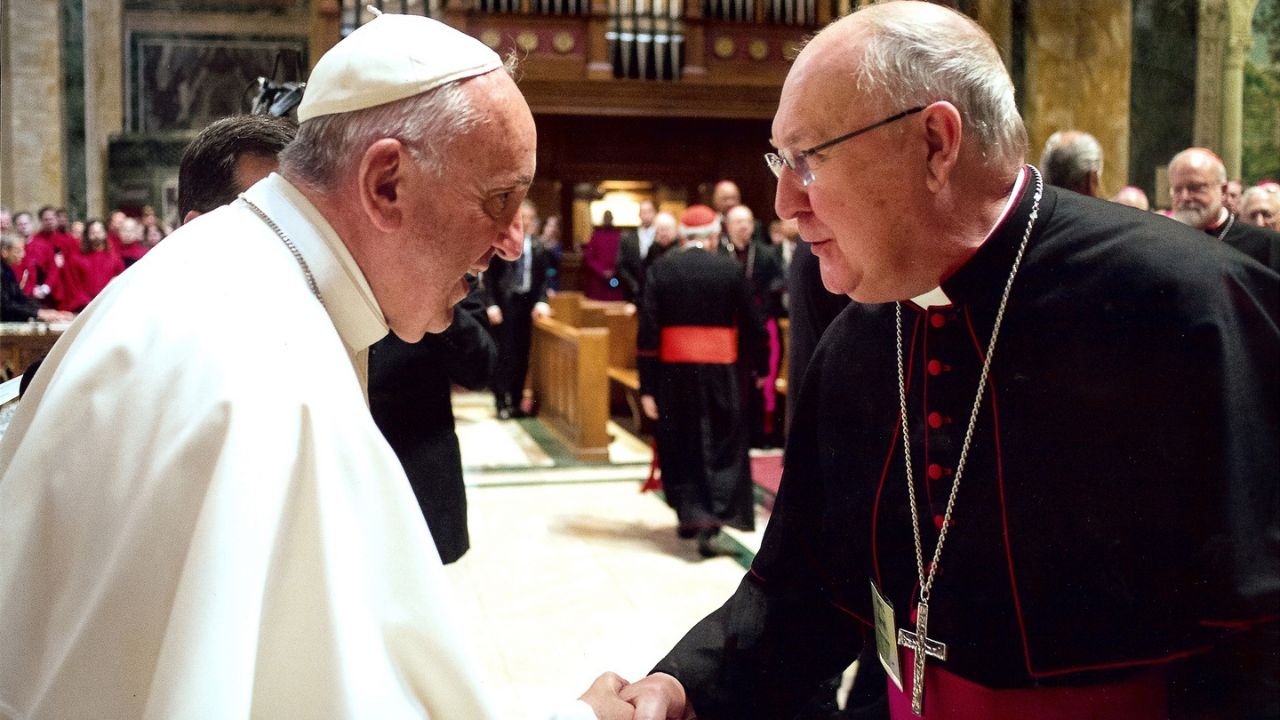Il cardinale Kevin Farrel, amico di McCarrick, ha aperto la conferenza "Pastori e fedeli laici chiamati a camminare insieme" in Vaticano
🇮🇹 Il Cardinale Farrel, amico di McCarrick, ha una strana visione del presbiterato
Inside the Vatican City State, the conference “Pastors and Lay Faithful Called to Walk Together” opened on Feb. 16, 2023. The meeting is being held in the Synod’s New Hall and will end on Feb. 18.
The goal, the Dicastery reports, is to raise awareness, pastors and lay faithful alike, of co-responsibility. The feeling, however, is not this. On numerous occasions lately, a demonization of presbyters (especially those who are well trained) is being promoted in order to praise, on the contrary, the figure of the laity.
A struggle, this one, that is taking the place of the odious distinction between “modernists and traditionalists” that journalists like so much. Yet, priests have never cooperated in belittling the figure of the laity; on the contrary, they have always maintained that the laity can hold certain roles but, as the law itself provides, they certainly cannot aspire to who knows what positions. Our question, once again, is: do people come to the Church to fulfill their lust for power or to seek Jesus Christ?
Opening the conference at the Vatican was Cardinal Prefect of the Dicastery for the Laity, Family and Life. Kevin Joseph Farrell, was auxiliary bishop of the Archdiocese of Washington. He was ordained bishop by Most Eminent Mr. Cardinal Theodore Edgar McCarrick, whose vicar general and moderator curiae he served.
Shadows over his life
When the scandal surrounding the American cardinal broke out, Farrell always reported that he knew absolutely nothing about it. A strange circumstance, many American priests and bishops report, since the prelate lived in the same residence as McCarrick. Meanwhile, however, Francis has developed a fetish toward this man. Why? Well, because he is one of those presbyters who spit in the pot where they eat. “The Church is not up to its task,” “too much clericalism,” etc., etc.
Of course, this is the system used by the press and the Pope likes it. If you’re accused of pedophilia and you’re a “conservative,” you’re necessarily guilty even before the trial; if you’re accused of pedophilia and you’re someone who talks about women priests, then that’s perfectly fine. Abuse and cover up a little whoever you like, stay where you are.
For Irish Bishop Farrel, after the election of Pope Francis, the climb to the million has begun. Who knows why, in the eight years of Benedict XVI’s pontificate, this man remained in Dallas and was left there in silence. Bergoglio, who came from the end of the world, called him to Rome and on August 15, 2016, appointed him prefect of the new Dicastery for Laity, Family and Life.

In the entire globe was there no one more knowledgeable on the subject? This is a presbyter who also has obvious problems with his vocation. First he joins the Legionaries of Christ, then he leaves and incardinates. Where does he incardinate? In Washington. He is originally from Dublin. “Well, he’s certainly in good company now since within the Dicastery we have also accommodated those who have been ‘kicked out’ of a religious congregation, right?” reports one cardinal.
But didn’t Pope Francis tell the Italian bishops that you have to be strict with those who go out and come in? Here, too, it works a bit the way the King likes it. One bishop, during the meeting with the CEI, had pointed this out to the Pope himself, who had replied, “Eh, yes but it depends case by case.” In fact, cases depend on what you profess: if you are aligned with the master, you can do what you want; otherwise, you’re out!
When Francis called Farrel to Rome, he made his first move to remove a faithful servant of Benedict XVI. This was H.E.R. Msgr. Josef Clemens, Cardinal Ratzinger’s longtime secretary, who only turned 75 in June 2022. Bergoglio, however, torpedoed and retired him when he was only 69.
After being called to Rome, Kevin Joseph Farrell began, increasingly, to accumulate positions within the Holy See. On November 19, 2016, the Pontiff created him a cardinal. On June 10, 2017, Francis appointed him a member of the Administration of the Patrimony of the Apostolic See. In February 2019, even, Farrel was appointed Camerlengo of Holy Roman Church. Sept. 29, 2020, the Pope includes him in the Commission of Reserved Matters, appointing him president. On June 07, 2022, he is appointed chairman of the Investment Committee.
Let us not forget that Farrell is the one who led the entire organization of the Tenth World Meeting of Families held in Rome from June 22-26, 2022. On that occasion Farrel chose the mosaic of Marko Ivan Rupnik, convicted of acquitting the accomplice in de sexto, as the representative image of the event.

It is clear, then, that the method used by Jorge Mario Bergoglio is that of his greatest inspirer: “Al amigo todo; el enemigo, ni justicia”. Just so, as Juan Domingo Perón said, Pope Francis has been governing the Catholic Church for a good ten long years.
Many priests have been reduced to the lay state for futile reasons, sometimes without even a canonical process done seriously. Otherwise, however, Francis protected bishops who were sexual abusers and cardinals who stole money in their dioceses. In this way, between one covered-up scandal and another hushed up, Francis invites journalists to his canteen so he can explain to them how in fact everything is going well.
Pope Francis’ primary goal, very clear from the beginning, has always been to demonize clergy. “Presbyters who are incapable, too focused on the sacred and not close to the people”. Francis always saw the figure of Jesus Christ as very “socially engaged” and very often forgot about that sweat mixed with blood shed in the Garden of Olives. Let us not talk about the contemplative life, because, precisely, it is not contemplated for Pope Francis.

The Conference at the Vatican
Although Kevin Farrel got nothing more than a license in philosophy and theology, inside the Synod's New Hall today he thundered against presbyters. "It is a matter," he said, "of entrusting the laity with certain tasks for which they demonstrate greater competence, zeal and creativity than priests and consecrated persons who may be accustomed to more traditional and less 'uncomfortable' methodologies and practices." Probably, Farrel has not studied St. Thomas enough, despite having attended the Angelicum. The priest is first of all a man and then a sacred minister. What would be the tasks that lay people are better at than presbyters? To be better prepared than Kevin Farrel does not require much effort, yet he is in charge of many Curia realities, why?
It needs to be pointed out how, today, unfortunately, society does not help with serious reflection and even the Church has the eagerness to want to hear the applause that comes from across the Tiber. We do not need people who join a staff just because of their gender or status. People, presbyters or lay people, should fill the roles because of their competence.There are lay people who have no idea even what the Catechism of the Catholic Church is, and we put them in charge of Vigilance Commissions of the Vicariate.
There are lay people whom we have kicked out of religious congregations and then found them teaching Catholic religion in Italian schools, just because "poor guy, if not then what does he do". Today we have promoted them and put them, even, at the head of dicasteries of the Roman Curia.
We have cardinals who are not clear about what their vocation is and biting the hand that feeds you, saying that the Church is not up to its task. We have a whole series of people with obvious problems, and we spend our time saying that "others are rigid" or, even worse, "the new presbyters are rigid, too tied to form". What is happening in the Catholic Church is happening in asylums: those inside the asylum say those outside are crazy.
Rather than holding Conventions on "common priesthood" and "collaboration between pastors and laity," it would be a good idea to start reflecting on the figure of the presbyter and the laity. What are the tasks of the laity? What are the roles of presbyters? We need to start unhinging that all too common idea that one enters the Church to lead.
There are certainly some presbyters who have had this "ambition," but lay people who look like sergeants and also command parish priests are also widespread (since 2013 they have proliferated incredibly). Real power holders. People who have made the parish or associational environment, sickening.
Cardinal Farrel, continued his prolusion, saying that in some fields, the laity are better prepared. He spoke, for example, of economic administration and finance or civil or canon law. "'We think, he said, of the processes of matrimonial nullity; the field of biolaw and bioethics, especially for those lay people who come from medical studies".
The problem is twofold. First, who is to say that there are no presbyters trained in this field? Second, do we want to respond to the mistakes made by bishops, similar to Kevin Farrel, in this stupid way?
In past years, in fact, especially following a Council that was never celebrated, bishops began to send fewer and fewer presbyters to study. On the one hand, there was the obvious impossibility of losing the priest to send him to Rome to study; on the other hand, there was the widespread disdain for study. Indeed, those who wanted to study were labeled (and still are) as "careerists and climbers."
The result? "Let's employ the laity in the ecclesiastical courts, let's give them the cash register of the churches", say these distinguished "franciscan" cardinals. Maybe, let's also tell the priests to go begging to the "layperson with the cash register" every time they want a sandwich.
Farrel, but not just him, should start asking himself whether the priesthood is really what he is called to, even before the episcopate. If he is not happy with this choice, he can always leave his apartment, his salary, his car and everything else he has been given and go back to Washington to McCarrick.
We would like to point out that, the numerous assignments Farrel is holding also give rise to numerous conflicts of interest, and it is a bit suspicious that one cardinal is performing all these tasks. Hadn't Francis talked about eliminating those who held all the power in the Roman Curia? Or, simply, was it necessary to replace the old powerhouses with new ones?
R.M.
Silere non possum